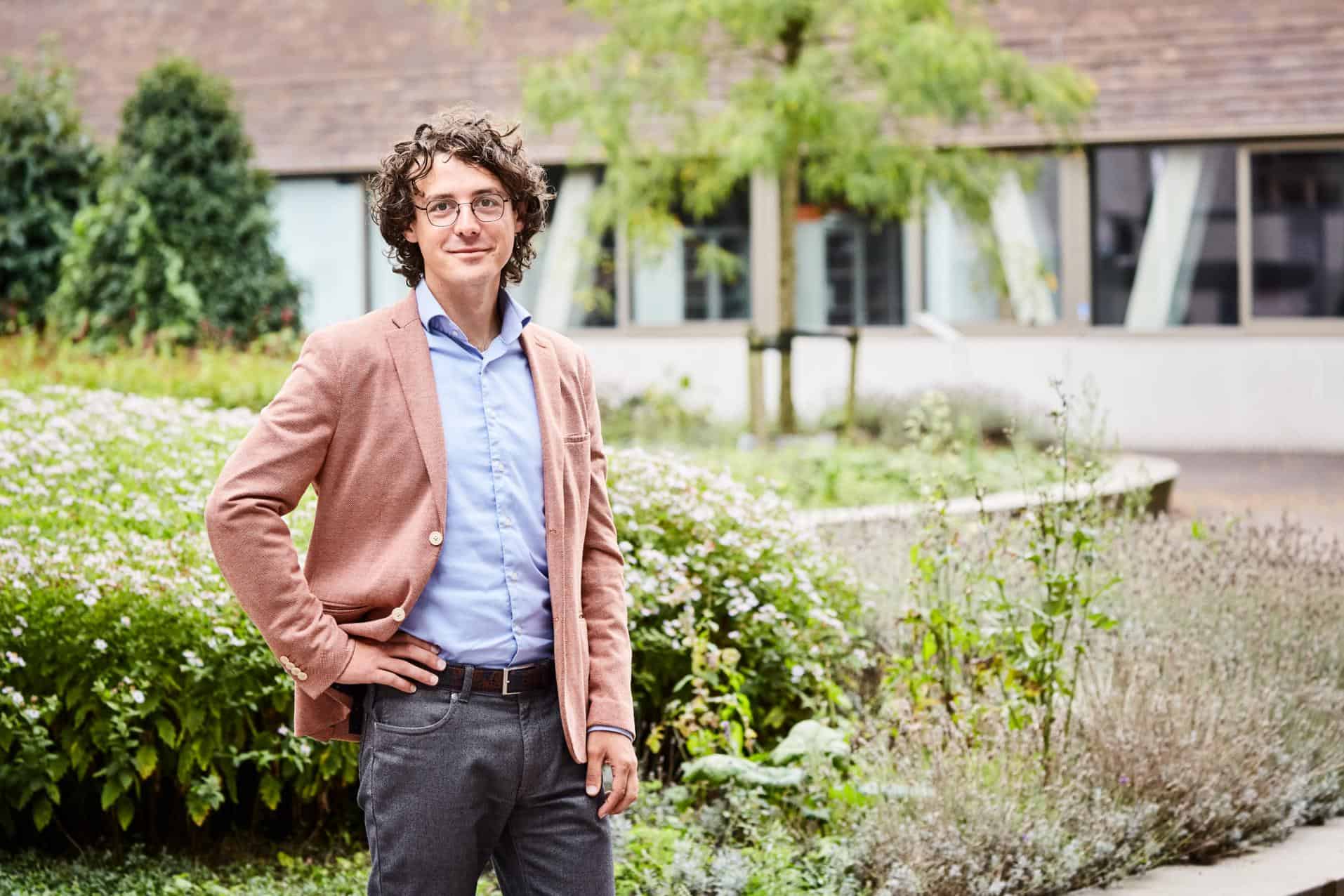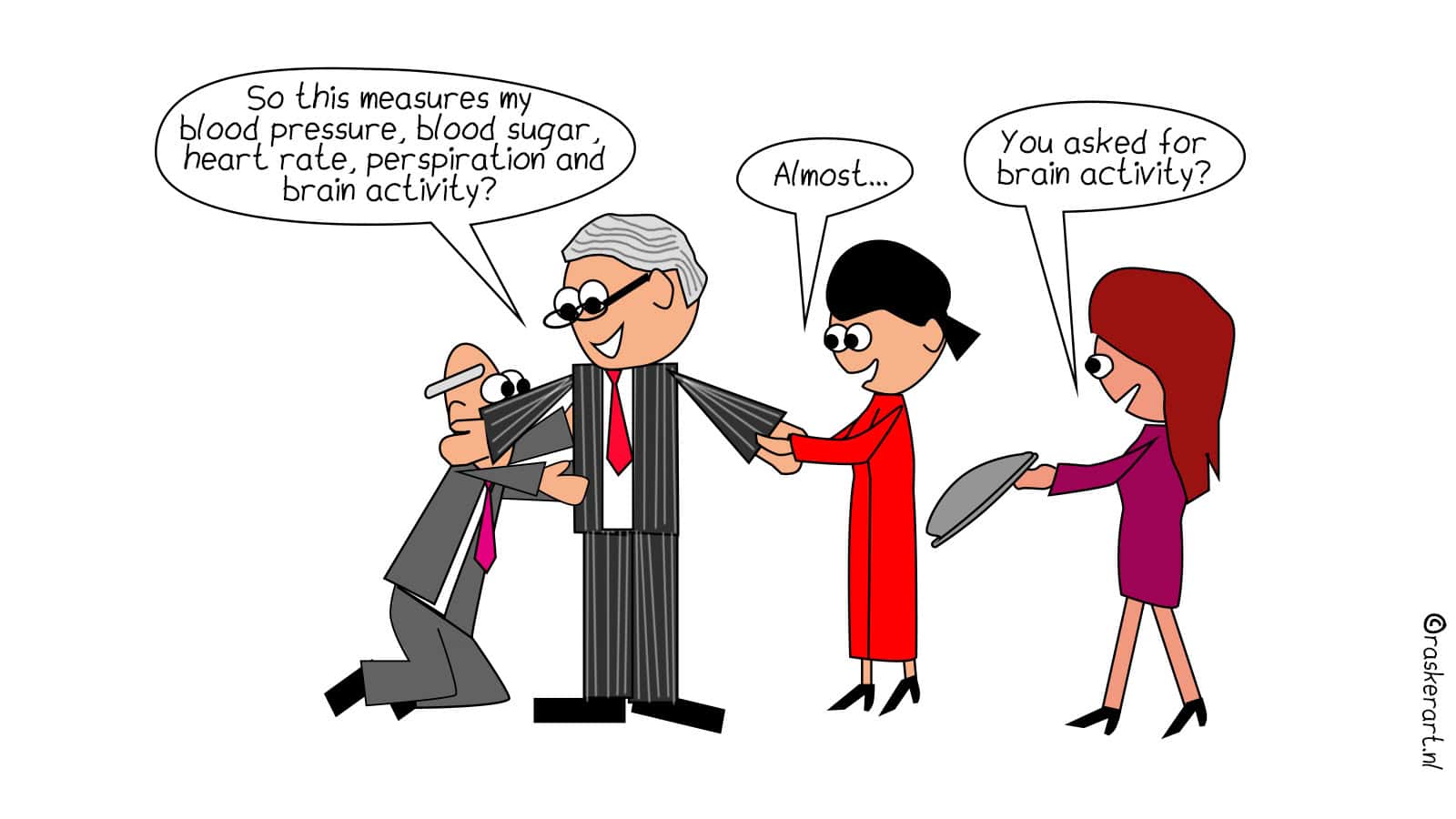
In our Sunday newsletter, we, as editors, look back on the past seven days. We do this on the initiative of our cartoonist Albert Jan Rasker. He chooses a topic, draws a picture, and we take it from there.
While the fossil industry lobbies European governments for hydrogen, real climate action is postponed. And that is a bad thing, says colleague Merien ten Houten in his editorial. We have discussed this before: how smart is it to use hydrogen for your energy needs if it can also be done via batteries? That we are not the only ones who think so was demonstrated once again last week: The Ministry of Infrastructure and Water Management organized a subsidy process for 400 new emission-free trucks, to which only battery-electric applications followed; there were zero hydrogen plans.
The main reasons for the unpopularity of hydrogen trucks in the Netherlands compared to electric trucks are cost and energy efficiency. Hydrogen trucks are more expensive to own and operate. In addition, electric trucks are more energy efficient, as they require less electricity to travel the same distance as hydrogen trucks. Green hydrogen, produced from wind or solar energy, is of limited availability and can be used more effectively in industries struggling to switch to electricity than in transportation, where electrification is more feasible.
In any case, countries around the equator – lots of sunny hours means a more efficient process to produce green hydrogen – are already preparing to produce the new gold. Some people already fear that this could lead to new “H(ydrogen) colonialism” and modern human rights violations. Albert Jan is already envisioning a new VOC mentality.
Laio (continued)
I promised to answer some more questions about the use of Laio, our journalistic AI assistant. Today, two frequently heard ones: 1) how much time is this saving you guys now, and 2) are you now organizing your own redundancy?
1) We don’t save any time at the moment. On the contrary: a lot of energy goes into training and testing Laio – especially considering that we have also started producing many more articles for that reason. The time we need per article is decreasing, due to the much more efficient phases of ideation, research, and production. On the other hand, we spend more time on fact-checking. However, we already know that the parts that currently take extra time will soon become faster and faster and that even the parts that are already going faster have not yet reached their peak. In short: for now, it will cost us a lot more time, mainly because of development aspects. But in time, we will produce more in much less time.
2) Then our dreaded redundancy. Well, in all honesty: no single brain cell in our heads fears this. An organization like ours will always seek new opportunities and possibilities within our mission. We will continue to look for ways to tell our story even better and connect even more with the expectations and desires of our audience. Artificial intelligence will play an increasingly important role in this, so we are sure that Laio 6.0 will support us even better in this. But we are equally sure that our editors will also have to keep their own eyes, ears, cameras, and microphones open to making the right choices. After all, most of the world’s information is not yet digitized and, thus, more difficult to capture by an algorithm.
We are happy to talk about it further with anyone who wants to know more about it, so please do come with your questions, for example, in response to this newsletter. Next week I will focus on another common question: Aren’t you facing ethical or legal obstacles?
What else caught our eye?
Finally, the highlights of last week. Again, there were many, thanks in part to Laio. What caught our eye?
Big leap forward in electric aviation: Maeve Aerospace unveils final design for a 52-passenger plane
Power superhighways, energy hubs, and a ‘target grid’ should secure electricity needs by 2045
Technical breakthrough is going to change lives; new exoskeleton keeps itself balanced
Start-up Boldwav develops Auto-Tune tool: ‘I want to give freedom back to musicians’

Who should determine the moral code of artificial intelligence?
Fast breeder reactors: a solution to nuclear waste or an eternal empty promise?
Make it a great, innovative week!








